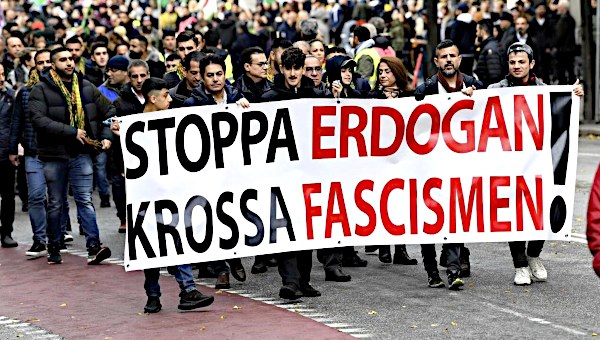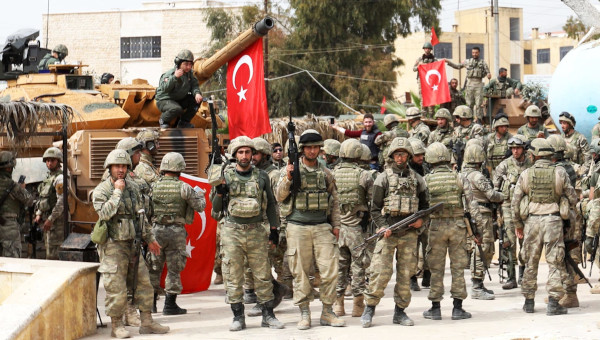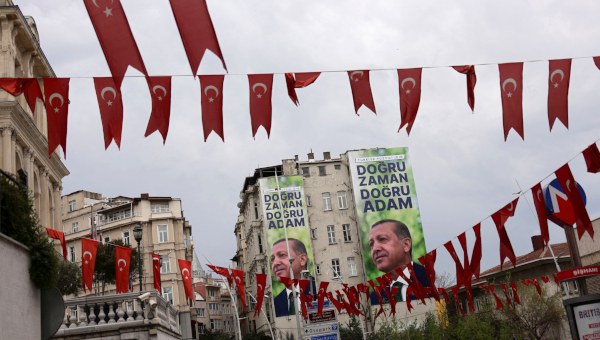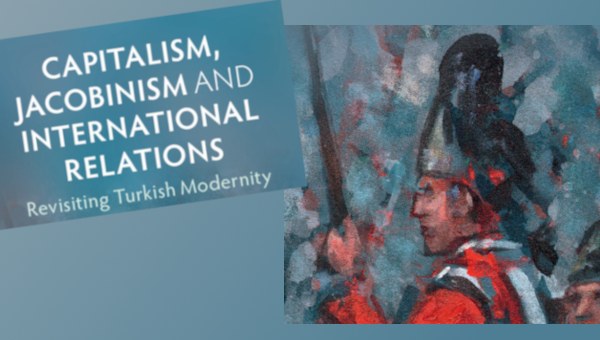New Fascism and the Question of Socialist Strategy: Reflections on the Turkish Case
After the re-election of Recep Erdogan as President in the Turkish general elections held in May 2023, serious disappointment and despair prevailed among a significant part of the Turkish left. There were three reasons for this. First, unlike previous elections, this election was perceived as a referendum that would determine the destiny of the political regime. Second, it was assumed that the economic crisis, the earthquake, and the increasing tensions within the power bloc would weaken the Erdogan regime. Thirdly, because of the optimism that accompanied this assumption, broad sections of society directed all their energy to the elections. Therefore, in order to overcome disappointment and despair and continue with a new strategy, it is necessary to rethink the three reasons listed here.
First of all, the elections were, of course, important in terms of the transformation of the political regime, but they were not a matter of life and death because there was not a situation that could be called ‘either fascism or democracy’, but a ‘new fascism’ that was progressing as a contradictory process in Turkey, as well as in other countries.

New Fascism in Turkey
New fascism has an important difference from classical fascism. Classical fascism was institutionalized by abolishing the liberal state form and elections in order to mobilize war-like violence against revolutionary organizations of the working class in the face of a strong threat from communism. New fascism does not need to suspend elections because there is no threat of communism. On the contrary, the continuation of the parliamentary scene keeps the ‘internal enemy’ alive as the interlocutor that right-wing populist leaders need to gather power and reproduce themselves.
Alongside the use of media and other ideological apparatuses of the state, one of the basic mechanisms of intimidating the enemy instead of destroying it is the use of the judiciary rather than police and paramilitaries within the coercive apparatus, especially in matters related to the continuation of the parliamentary scene. A typical example of this in Turkey is the Justice and Development Party (Turkish: Adalet ve Kalkınma Partisi, AKP) government’s intervention in the election process, not through naked violence, but through the Supreme Election Council, thus generating consent by bringing the issue to the legal sphere. In the last election, this mechanism was used to the fullest; still, political analyses were mostly made ignoring the fact that ‘the dice were loaded from the beginning’.
So, in a process in which it was almost impossible to win an election within the structural constraints of the new regime, why did a significant number of socialists, like other opposition forces, perceive the elections as a matter of life and death and carry out such vigorous work with the slogan “We will definitely win”? There are two reasons for this, one subjective and the other objective. Subjectively, it was impossible to remain passive in a process that was indeed coded as a matter of life and death by political prisoners waiting to be freed if the elections were won, by people under statutory decree waiting to go back to work, by political exiles waiting to return to the country, and by other similar groups. And objectively, there was the expectation that the economic crisis, the earthquake, and the cracks within the power bloc would weaken the regime. However, the AKP government managed the earthquake and economic crisis in a manner designed to consolidate its base, so these two factors did not create a rift in the AKP voters.1 And it was not difficult to predict that the tensions within the power bloc would not weaken the regime, but on the contrary, Erdogan would consolidate his position by manipulating multiple centres of power against each other. In sum, the transformation in the state apparatus and power relations under the 21-year AKP rule was decisive in the election defeat. But of course, this should not prevent us from accounting for the mistakes made by the opposition.
As can be understood from what I have written so far, I think the first mistake was that a significant portion of socialists coded the elections as a matter of life and death. If, instead of attaching such importance to the elections, we had defined it as a process in which we could strengthen our ties with the social opposition, establish new ones, express ourselves, and accumulate power, we would be able to prevent the next disappointment, and we would not be trapped in the dilemma between acting in accordance with the sensitivities of the society in order to win the election and then trying to transform those sensitivities.
Combating Today’s Fascism
All of this brings us to the necessity of discussing the question ‘What kind of political regime are we in and what strategy should we follow against this regime?’ Socialists have a strong experience of fighting against classical fascism, military dictatorships, and authoritarian regimes under the guise of liberal democracy. Discussions around the question of ‘elections vs. street movements’ are based on this experience. However, this discussion does not offer a strategy to combat the specifics of today’s fascism. When discussing the relationship between political regime and strategy from a Marxist perspective, I think roughly four different historical conjunctures can be considered. The first is the revolutionary situation in Russia in 1917 when the state’s coercive apparatuses were at the forefront. In this conjuncture, Lenin proposed the “dual power” strategy, arguing that power should first accumulate in movements outside the state, in soviet-type organizations in which the people had a direct say, and then these organizations would seize the state apparatus and put an end to the dual power situation.2
The second historical conjuncture includes classic fascism and military dictatorship where elections are suspended. Nicos Poulantzas (1936-1979), who deals with the relationship between political regime and strategy in different historical conjunctures in a way specific to those conjunctures, states in his book The Crisis of Dictatorships (1975) that social struggles from outside the state do not have a direct effect on the collapse of such regimes, but rather these struggles accelerate the collapse of these regimes by deepening intra-state contradictions.
The third historical conjuncture is the concentration of power in the executive apparatus in the face of the deepening contradictions of capitalism since the early 1970s. In his book State, Power, Socialism (1978), Poulantzas defined the political regimes that emerged under these conditions as ‘authoritarian statism’ and proposed the strategy of ‘democratic socialism’ against these regimes. This strategy is based on a formula that could be summarized as ‘both social movements and electoral politics’, emphasizing the need for social movements that accumulate power through direct democracy to also try to transform intra-state relations through representative democracy by means of political parties. This formula guided parties like Syriza to come to power and was also a meaningful option in Turkey before the June 2015 elections.
However, the historical conjuncture we have encountered in Turkey since November 2015 has different characteristics from all three. In this fourth case, elections are not suspended, but the transformation within the state apparatus itself evolves into a form specific to new fascism. Unfortunately, we do not have a sufficient repertoire of theoretical and practical experience regarding the strategy to be followed in this situation. When Turkey’s uniqueness, especially regarding the Kurdish issue, is taken into account, we have to find creative formulas that go beyond the dilemma between elections and street movements.
After the electoral defeat, some sections of the Turkish socialist left returned to the formula that ‘the real struggle should continue in the streets’. But under the conditions of new fascism, street movements have their limits too. In this case, I think it is necessary to move from “war of manoeuvre” to “war of position” in Gramscian terms, that is, from the strategy of “frontal attack on the state” to the strategy of “surrounding the state with counter-hegemony to be established within broader sections of society in the long term.” This war of position does not need to be visible; on the contrary, it is critical to establish ties with different sections of society in a way that does not put their own future at risk.
The socialist left has serious historical experience on this issue, but this rich experience seems to have been forgotten as the social media age has accustomed everyone to being visible. I think that mobilizing the knowledge of this experience again and in more creative ways in the war of position against new fascism will be important in weaving a new strategy that will go beyond the dilemma between elections and street movements. •
An earlier version of this article was published in Turkish for the dossier “Socialist movement, self-criticism and renewal” at sendika.org.
Endnotes
- See “Challenging Authoritarian Rule: Turkish Elections 2023” for details.
- Panagiotis Sotiris has reformulated this strategy as “permanent dual power” in the context of his critique of the strategic line that pushed Syriza to integrate with the establishment. He points out that dual power is not only a temporary strategy specific to the revolutionary situation, but the left must continue to accumulate power in a permanent way outside the state apparatus. See “The Strategic Question Revisited: Ten Theses.”





